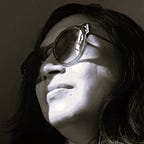Writing vs. Activism
Frankly, in a world so fragmented and opinionated (thanks to social media), it is difficult to say where writing ends and activism begins. I’m not an activist in the literal dictionary sense, but I’m fiercely protective of what I think is right and carefully scrutinize what I choose to believe in. Causes I’m invested in surely percolate into my writing, and readers might form opinions about my stands on various issues: Climate, for example, and migration/displacement. I’ve written scores of poems and stories on both. However, I must admit that I shy away from putting forth my opinions on matters I have a fractured or incomplete understanding about, and I think one is allowed that small mercy. In fact, that is how I think it should be for everyone, if not for anything else than for the sake of basic civility and tolerance.
Recent events made me realize that part of writing for others (i.e. publishing) means that one is unloading biases, however sugarcoated. These biases are definitely not everyone’s cup of tea, so one will see negative reviews, even outright boycotts. Of course, readers are free to decide, and in many cases have driven writers to despair. The funniest incident I recall is British crime novelist Lynn Shepherd telling J.K. Rowling to stop writing because “Rowling has no need of either the shelf space or the column inches, but other writers desperately do.” In another incident that took place in June of 2022, American author James Patterson had to apologize under pressure from readers worldwide, and rightly so, for saying white writers face a ‘form of racism’ which kicked up a storm. Another subject that is frequently chosen to share opinions on: Creative Writing classes, whether essential or not. In 2015, Ryan Boudinot wrote an essay about it after quitting teaching in an MFA program in the US and instantly found himself supporters and those who opposed his views. In fact, I found a tweet only yesterday about someone having similar opinions that had been viewed by 12K users. So, it is evident that there’s no dearth of activism among writers, whether through their work, or plainly standing up for what they believe is correct.
Writers and creatively inclined people are free thinkers by definition, after all they are ‘creating’ something that does not already exist. Therefore, all free thinkers express their independent thinking at some point in their lives by one or more means available to them, and all artists and thinkers might also be activists. I came across American naturalist, essayist, poet, and philosopher Henry David Thoreau’s quote: “Disobedience is the true foundation of liberty. The obedient must be slaves.” I am wondering if it must follow that those of us in the writing community who are not being disobedient in a societal sense, are not free? And those who are actively questioning what already exists, and what is continuously happening in the world, cease to be writers and instead are activists now? I think the answer lies somewhere in between, and activism can be both creative and participatory.
Many are of the view that activism and positionalities on social and political issues should go concurrently with artistic expression. Should, not must. Writers and artists have completely understandable reasons to stay quiet too. Many prefer to explore beyond what is in their ‘immediate’, foraying into the ‘possible world’, ‘probable world’ and ‘fantastical world’, which is just another form of expression.
I am all for expression, in whatever means available — whether active or passive. What still bothers me though is how does one align this with the other truth, that we are in the era of arguments and counter arguments casted at the flick of a button, or at a keypad tapped for a few seconds (and not all by thinking human brains)? Anyone can have their opinion out there, broadcasted on social media for anyone to find it, but can also suffer from a permanent damage to their independent thinking because of the backlash they face. Again, there’s the dilemma of what is the extent of the correctness of one’s broadcasted opinion, even if they claim to be a free thinker. And here I’m not talking about political or societal correctness, but factual correctness, because so much of what we claim to know on a daily basis is consistently untrue, even outright fake, lies, and propaganda — which brings me back to the where I started: that the boundary between activism and writing is self-imposed and should be accepted as such.
